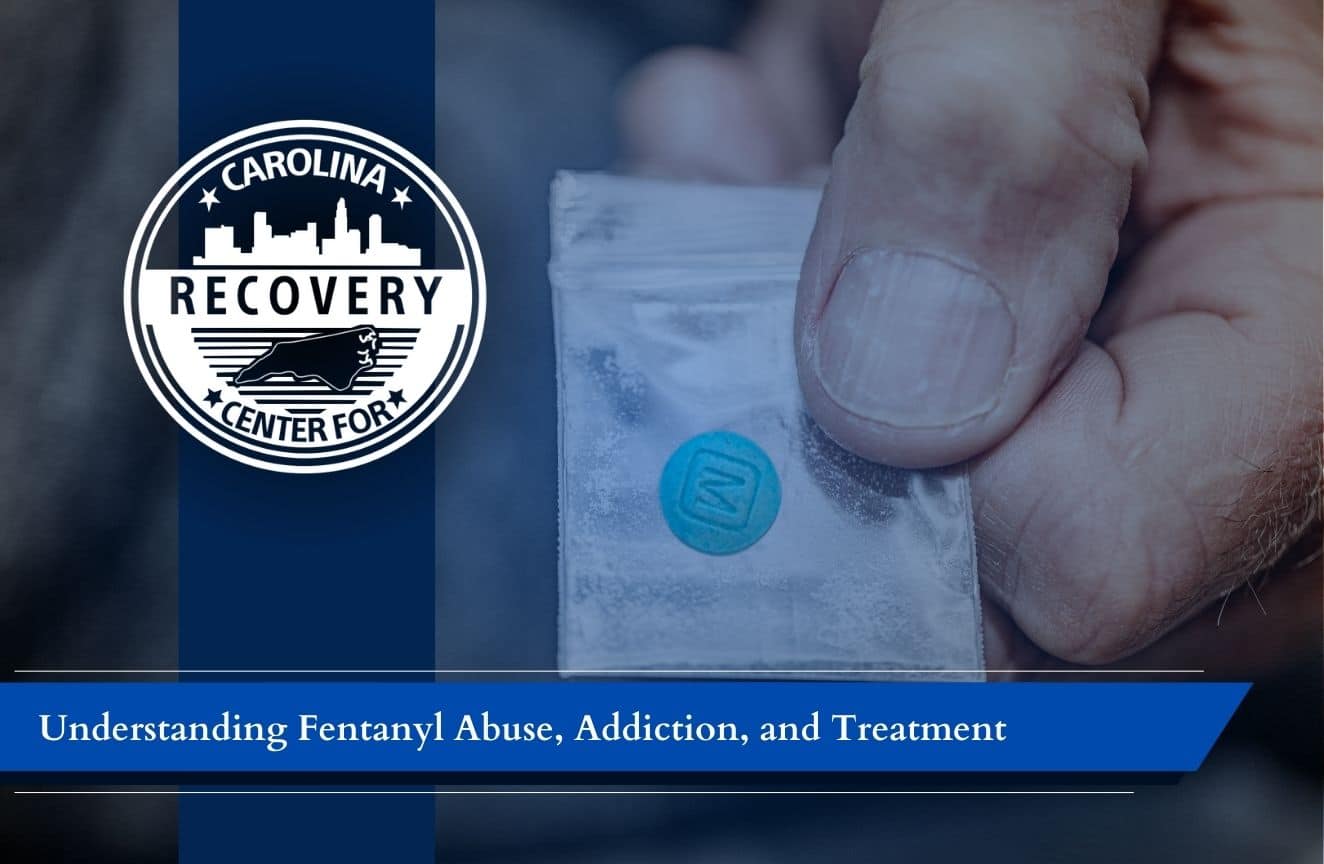


Fentanyl is an opioid drug that is chemically similar to morphine. However, fentanyl is much more potent than morphine–up to 100 times more potent–and far more addictive. Medical professionals typically prescribe fentanyl to patients with moderate to severe pain.
The Drug Enforcement Agency (DEA) classified fentanyl as a Schedule II controlled substance. This means that fentanyl has a medical purpose but has a high risk for abuse and addiction. People who take prescription fentanyl may develop opioid addiction and must watch for symptoms of fentanyl addiction.
While fentanyl is intended for use in highly controlled medical settings, people also produce and sell it illegally. Illicit fentanyl has flooded the illegal drug market, and if people want it, they can likely get it. Illicit drug dealers may also add fentanyl to other drugs, such as heroin or cocaine, which puts people at risk for unintentional fentanyl exposure and overdose.
This article will explore fentanyl abuse, the signs of fentanyl addiction, and how to find addiction treatment to overcome these conditions. Reach out to the admissions team at the Carolina Center for Recovery now to learn about our treatment programs or to schedule an intake assessment.
Fentanyl is a synthetic opioid drug that produces effects similar to other opioids but is far more potent. Doctors prescribe fentanyl to patients who have had surgery, those with chronic medical conditions, or to treat cancer pain. Patients who have developed tolerance to other opioids may also take fentanyl.
Fentanyl is available in several forms, including:
Most medical professionals agree that prescription opioids are generally safe if people take them as prescribed. Doctors usually prescribe fentanyl only for short periods to reduce the risk of misuse or dependence.
When people take fentanyl, the drug binds to opioid receptors in areas of the brain related to pleasure, emotional regulation, and pain control. It mirrors the effects of endorphins, which are naturally occurring chemicals that can reduce pain and provide pleasure.
Fentanyl produces euphoria, which is a rush of warmth, pleasure, and well-being. People who take fentanyl may like these feelings so much that they want to take fentanyl differently than their doctor told them to. People may also take fentanyl recreationally (without a prescription) for these desirable effects. Fentanyl misuse can lead to physical dependence and addiction.
People who take opioid drugs like fentanyl may develop tolerance to them. Tolerance occurs when a person’s body adjusts to the presence of a substance. People with tolerance need to take a substance more often or take larger doses to get the effects they want. Over time, people may develop a physical dependence on that substance. People may develop fentanyl addiction after developing tolerance to other, less potent opioids.
Fentanyl addiction is a severe, sometimes life-threatening condition. More than 150 people die from a synthetic opioid overdose each day in the United States, and fentanyl is involved in many of them. Some of the signs of an opioid overdose include:
A fentanyl overdose is a life-threatening medical emergency. If someone near you is experiencing an opioid overdose, call 911 immediately. Remain with the person until EMS arrives. Administer Narcan (naloxone) if it’s available.
Understanding the risks of fentanyl and providing treatment for substance use disorders is essential to preventing overdose deaths from this common drug.
Recognizing the signs of fentanyl addiction is the first step in reducing the risk of overdose and beginning a recovery journey. Here are some of the most common signs and symptoms of fentanyl addiction:
If you or someone you love exhibits some of these signs of fentanyl addiction, seek treatment as quickly as possible to avoid life-threatening complications.
Fentanyl addiction treatment typically begins with a medically-supported detox program to manage withdrawal. Fentanyl withdrawal symptoms often include:
The intense physical and emotional discomfort of fentanyl withdrawal can keep people from completing detox. The risk of relapse is high. During detox, medical and support staff will provide medications, emotional support, and round-the-clock supervision that can ensure a safe, complete detox.
After detox, it’s essential to continue treatment in a comprehensive addiction rehab program. Fentanyl addiction treatment plans generally include:
At the Carolina Center for Recovery, we offer comprehensive, evidence-based treatment programs for fentanyl addiction. Contact our admissions team now to explore your treatment options or schedule an intake assessment.